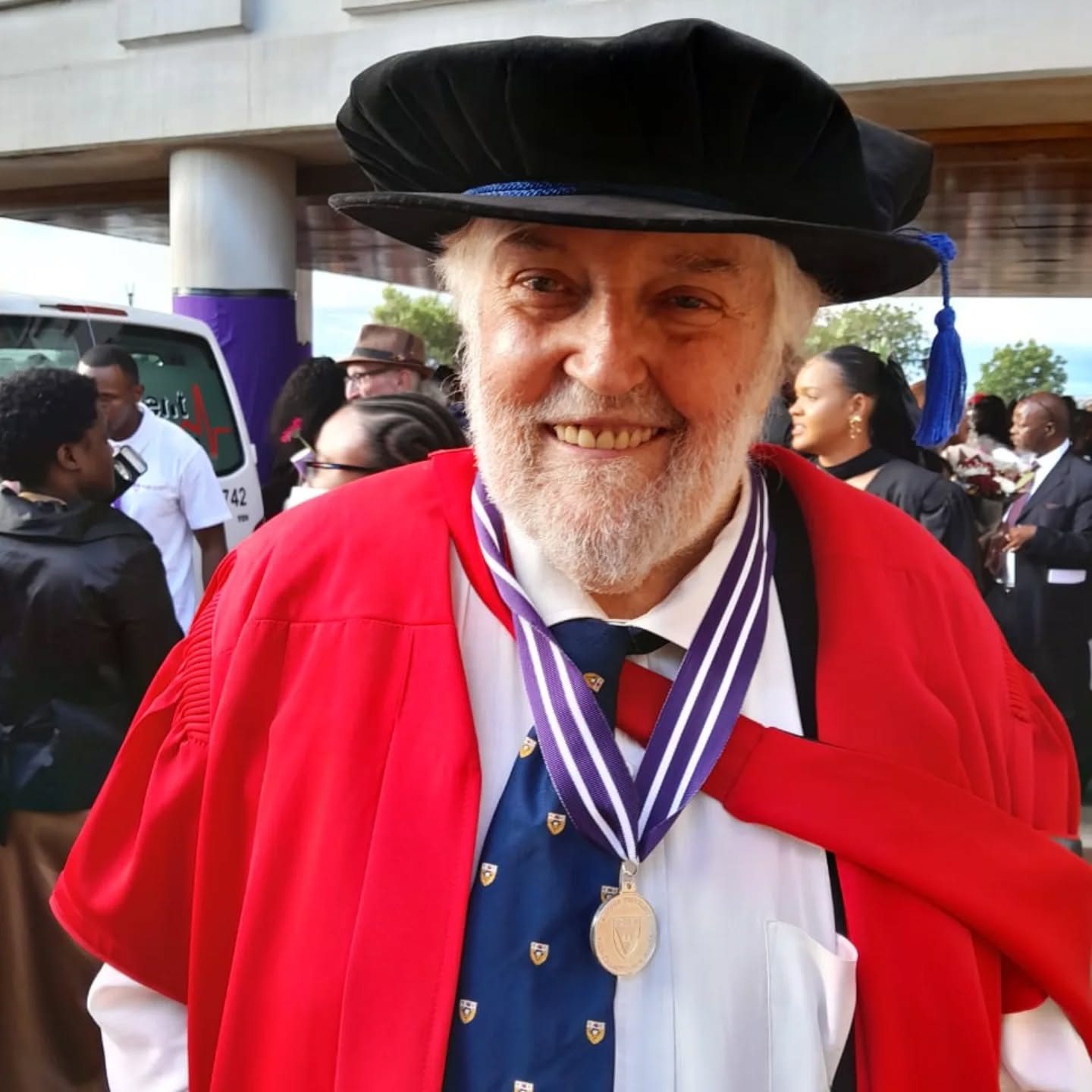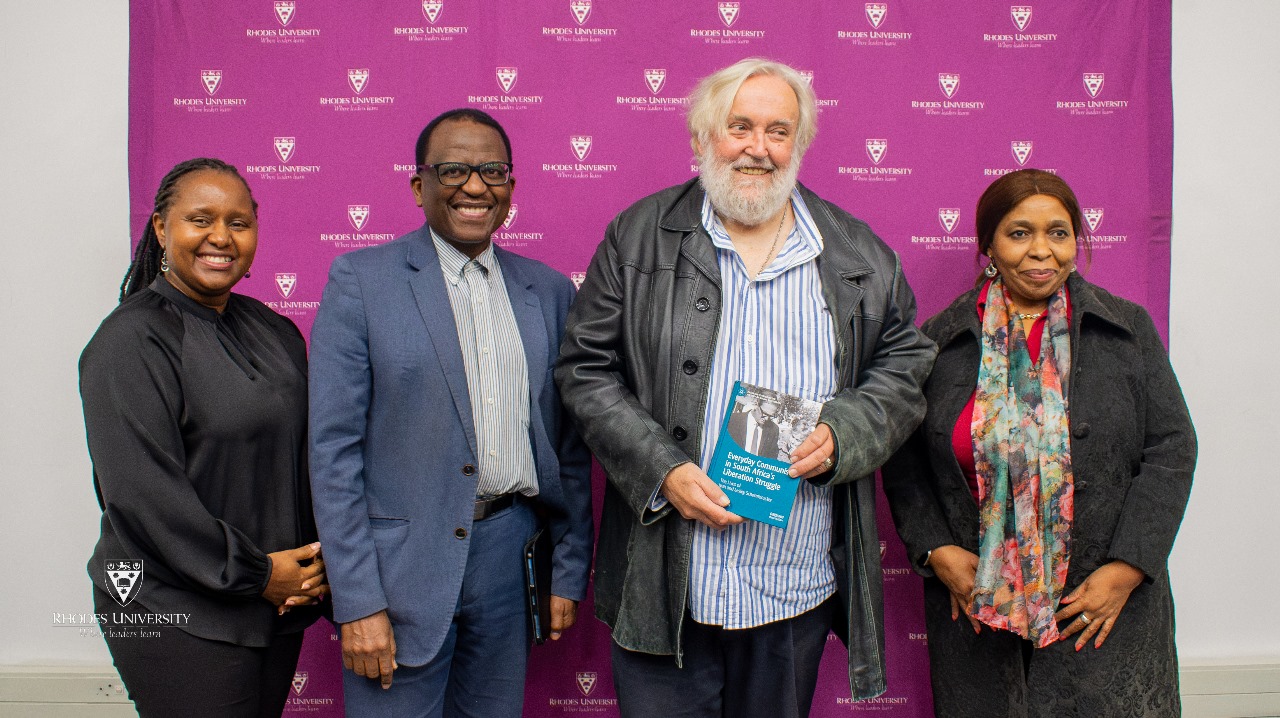
By: Sabrina Zerf
By the time most academics retire, they have packed up their office plants, maybe published a few final papers, and faded into the footnotes of departmental memory, but not Professor Alan Kirkaldy. At Rhodes University, where history comes alive through the library stacks, Prof Kirkaldy has done something quite revolutionary.
In 2025, long after he might have been expected to settle into his interests of making knives and spending time in the veld and game reserves, Prof Kirkaldy was awarded the prestigious Vice Chancellor's Book Award at the 2025 Graduation ceremony for his groundbreaking work, Everyday Communists in South Africa's Liberation Struggle: The Lives of Ivan and Lesley Schermbrucker. It is a book that, in Kirkaldy's words, was never meant to be one. "The idea was originally not to write a book," he reflected in an interview. "Telling the story became very important to me."
Most liberation histories are dominated by well–known activists: Tambo, Slovo, and Fischer. However, Prof Kirkaldy asks us to look beyond the spotlight into the quieter, less celebrated lives that shaped the movement in equally meaningful ways. "I've always wanted to write from below about ordinary people," he said. "Ordinary people are what matter in history."
His interests have always been queer histories, mission records, the South African Communist Party, and environmental justice. Although he officially retired from his position as a professor in 2023, Prof Kirkaldy remains deeply engaged in academic life. Retirement, for him, has not meant stepping away from intellectual work but instead shifting its form. He continues supervising postgraduate students, lending his expertise to a new generation of scholars.
Prof Kirkaldy's award-winning book invites reflection more than reaction. It expands the definition of what counts as "heroic" in the freedom struggle. It asks: What does resistance look like when no one is watching? The award, he admits, has special meaning. "Personally, it's the one award I've always wanted to win," he said. "What's nice for me is it came as I was retiring." And that, in the end, is why he won the 2024 Vice Chancellor's Book Award. Because in a world hungry for grand gestures, Prof Kirkaldy gave us something subtler, something braver: the liberation of remembering differently.
On the 14th of May 2025, Rhodes University had the pleasure of listening to Prof Kirkaldy's Book Award Lecture. In reflection, he reported to his friends and family: "Those of you who know me well will know that I am rarely at a loss for words... As I walked in to give my Book Award Lecture, I was presented with the embroidered bag that Lesley made while in prison for being a member of the underground Communist Party and hiding Bram Fisher during his period as the Scarlet Pimpernel and a letter from her thanking me for writing the book. As a result, I had tears in my eyes when I spoke about this unscripted at the beginning of my lecture."
BOOK DETAILS
Title:
Everyday Communists in South Africa’s Liberation Struggle, The Lives of Ivan and Lesley Schermbrucker, Palgrave Studies in the History of Social Movements, Cham, Palgrave Macmillan under licence to Springer Nature, Switzerland, 2022.
Abstract:
This book explores the role of social movements in the Southern African liberation struggle, through the lens of two ‘everyday communists’. Focusing on the Communist Party of South Africa (CPSA), the author explores the lives of Ivan and Lesley Schermbrucker, whose contribution to the party was more clandestine than that of leaders such as Bram Fischer and Joe Slovo. They represent how ‘ordinary’ people could play significant roles based on stances more rooted in common decency and morality than in Marxist theory. The book also sheds light on the interplay between transnational and national tendencies during the liberation movement, particularly between the 1940s and the 1960s. The Schermbruckers changed their views in response to the shifting national and international political landscape, the rise of Stalinism, and the flight of South African activists into exile from the 1960s. Both fluent in African languages, they were able to create relationships of trust with African members of the CPSA. Examining tensions and conflicts during the liberation struggle, this book provides fresh insights into ‘underground’ activism.

